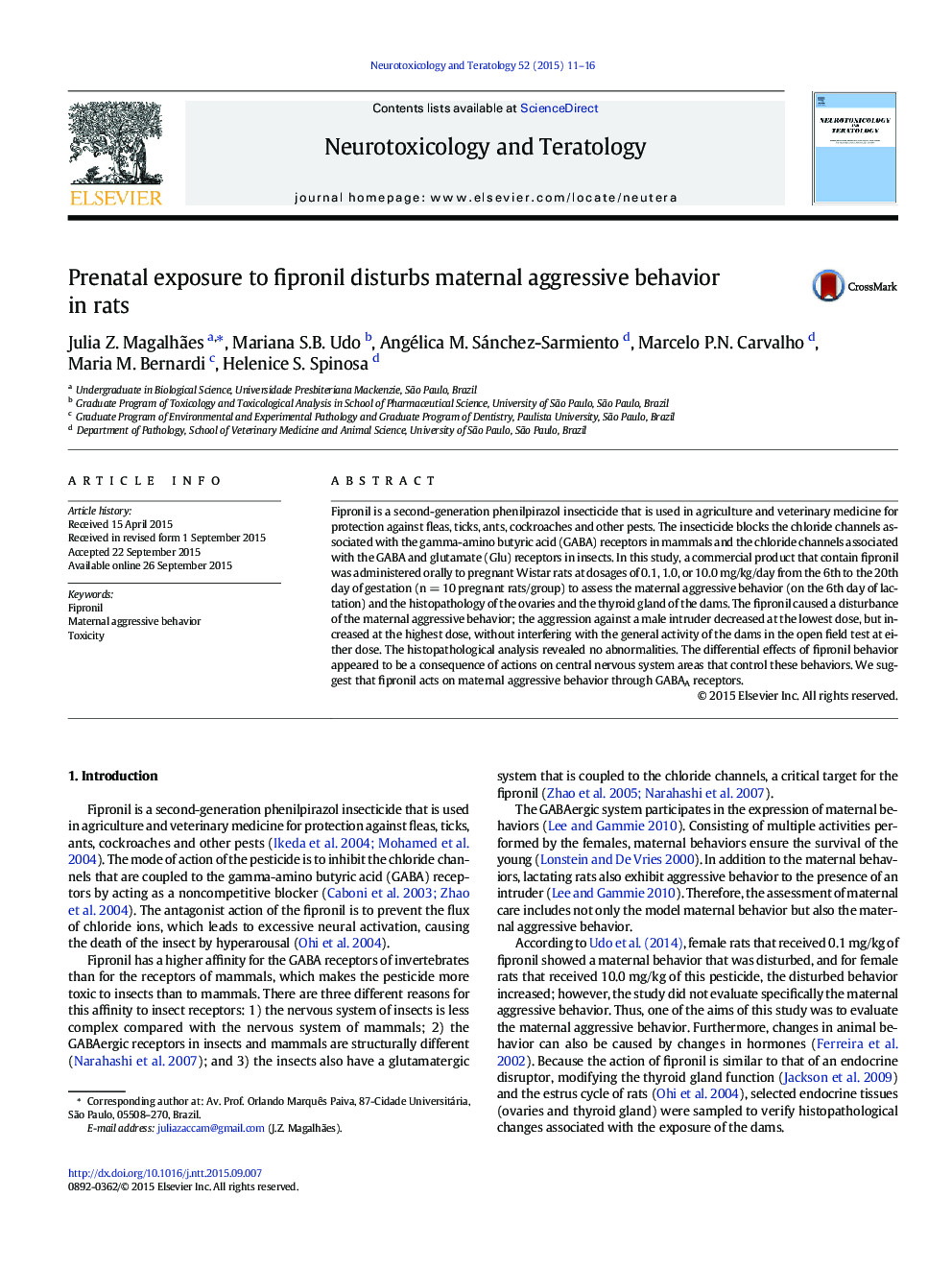| Article ID | Journal | Published Year | Pages | File Type |
|---|---|---|---|---|
| 5855548 | Neurotoxicology and Teratology | 2015 | 6 Pages |
â¢The aim of this study was to evaluate the maternal aggressive behavior of dams that received fipronil during pregnancy.â¢The dams from the 10.0 mg/kg group had a higher frequency of rearing behavior than the control group.â¢Fipronil caused dysfunctions in the aggressive maternal behavior decreasing at the lowest dose, but increasing at the highest dose.â¢The histopathological analysis revealed no abnormalities on the ovaries and thyroids.
Fipronil is a second-generation phenilpirazol insecticide that is used in agriculture and veterinary medicine for protection against fleas, ticks, ants, cockroaches and other pests. The insecticide blocks the chloride channels associated with the gamma-amino butyric acid (GABA) receptors in mammals and the chloride channels associated with the GABA and glutamate (Glu) receptors in insects. In this study, a commercial product that contain fipronil was administered orally to pregnant Wistar rats at dosages of 0.1, 1.0, or 10.0 mg/kg/day from the 6th to the 20th day of gestation (n = 10 pregnant rats/group) to assess the maternal aggressive behavior (on the 6th day of lactation) and the histopathology of the ovaries and the thyroid gland of the dams. The fipronil caused a disturbance of the maternal aggressive behavior; the aggression against a male intruder decreased at the lowest dose, but increased at the highest dose, without interfering with the general activity of the dams in the open field test at either dose. The histopathological analysis revealed no abnormalities. The differential effects of fipronil behavior appeared to be a consequence of actions on central nervous system areas that control these behaviors. We suggest that fipronil acts on maternal aggressive behavior through GABAA receptors.
